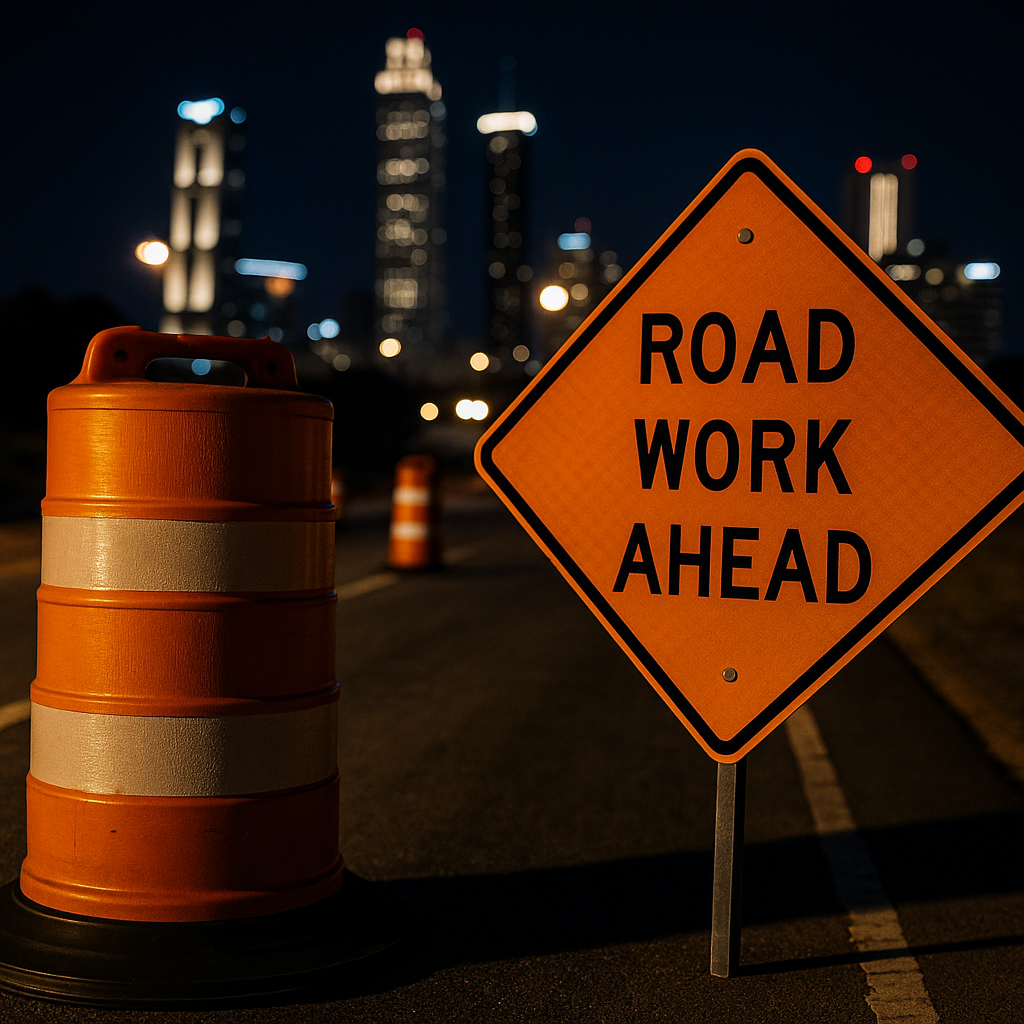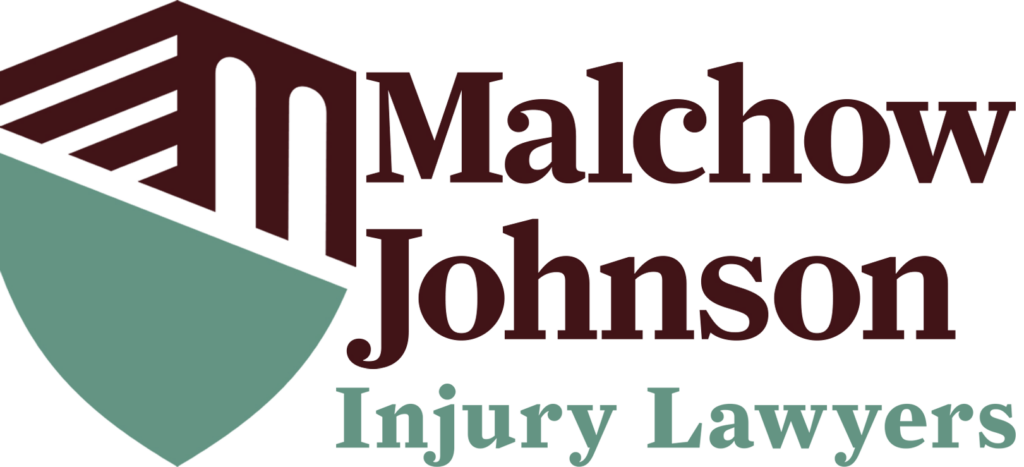If you commute from Augusta toward Atlanta on I-20, you have probably seen lane shifts, barrels, and bright work lights at night. Crews often pave and set barriers overnight to reduce daytime congestion, yet the tradeoff is new risk for drivers. This guide explains why work happens after dark, the hazards that come with it, and the exact steps to take if a night work zone crash injures you or someone you love. Malchow Johnson Injury Lawyers represents injured drivers and passengers across the Augusta area and nearby communities.
Why crews work on I-20 at night between Augusta and Atlanta
 Georgia transportation projects commonly schedule paving, striping, bridge work, and barrier moves overnight to keep daytime lanes open. Night work cuts delays for commuters and freight. It also lets crews complete tasks like lane closures and equipment moves with lower traffic volume. The downside is limited visibility for everyone at the scene.
Georgia transportation projects commonly schedule paving, striping, bridge work, and barrier moves overnight to keep daytime lanes open. Night work cuts delays for commuters and freight. It also lets crews complete tasks like lane closures and equipment moves with lower traffic volume. The downside is limited visibility for everyone at the scene.
How night work zones change the roadway
Night construction alters the cues you rely on at speed. Expect:
• Reduced sight distance, glare from portable lights, and headlight dazzle
• Narrowed lanes, abrupt tapers, and temporary rumble strips
• Cones, drums, and barrier walls that leave little room for error
• Irregular pavement, manhole covers set high or low, and slick fresh seal coat
• Workers, pilot vehicles, flaggers, and construction trucks entering the lane
Common crash patterns in Georgia work zones after dark:
• Rear-end impacts near lane drops or stopped traffic
• Sideswipes and mirror strikes in narrowed lanes
• Single-vehicle loss of control from uneven surfaces or sudden tapers
• Crashes with slow-moving construction vehicles reentering the lane
• Chain reactions when drivers overcorrect to avoid barrels or barriers
Practical ways to lower your risk tonight:
• Plan your merge early. Watch for arrow boards and the first line of barrels.
• Add extra following distance. Night stopping distances increase.
• Dim your dash lights to reduce glare and improve contrast.
• Avoid last-second lane changes near the taper. Pick a lane and commit.
• Treat every construction entrance as an active driveway.
• Do not use cruise control on fresh or patchy pavement.
• If you feel boxed in, ease off the throttle to create space rather than braking hard.
What to do after a night work zone crash on I-20
-
Get to a safe spot and call 911. Hazard lights help other drivers see you.
-
Document the scene with your phone. Capture barrels, lighting rigs, signage, lane tapers, skid marks, equipment entrances, and any missing signs.
-
Identify the players. Work zones can involve the state, a prime contractor, and multiple subs. Photograph truck doors, equipment logos, and subcontractor placards.
-
Ask for names of any flaggers, pilot-car drivers, or crew who witnessed the event.
-
Get medical care the same night. Night crashes can mask injuries due to adrenaline and glare-induced headaches.
-
Preserve your vehicle. Do not authorize a total loss teardown before photos and measurements.
-
Speak with a lawyer before a recorded statement. Insurance adjusters move quickly and may request a statement while you are in pain. Learn your rights first by reading this quick guide on statements after a car crash.
Who may be legally responsible
Several parties can share fault in a night work zone crash:
• A driver who was speeding, tailgating, or distracted
• A contractor that set unsafe tapers, used the wrong signs, or removed pavement markings too soon
• A subcontractor that moved a truck into live lanes without a spotter
• A traffic control supplier if devices failed or were missing
• A public entity in limited circumstances related to planning or maintenance
Georgia’s comparative fault rules can reduce your recovery if an insurer blames you for “driving too fast for conditions.” Careful investigation of the traffic control plan, sign logs, crew call-outs, and equipment movement can shift responsibility where it belongs.







Insurance issues unique to work zone crashes
• Multiple policies. A contractor’s commercial policy may apply in addition to the at-fault driver’s auto insurer.
• Underinsured drivers. Night work can cause sudden slowdowns. If a driver with low limits hits you, your uninsured/underinsured motorist coverage can help. See more about uninsured drivers here.
• Delayed symptoms. Soft-tissue injuries, concussions, and eye-strain headaches often surface the next day. Keep every appointment and save all discharge instructions.
Evidence that strengthens a night work zone claim
• Photos and video of the taper, lane width, signage sequence, and any missing channelizers
• The maintenance of traffic plan and nightly work log
• Crew lists, subcontractor scopes, and delivery tickets for barrels or barricades
• 911 audio and body-cam footage, which may capture lighting or visibility conditions
• ECM data from involved trucks and work vehicles
• Your medical records linking symptoms to the crash
Why a local Augusta-based injury firm matters
An attorney who works these roads understands where I-20 bottlenecks at night, how lane closures are staged, and how to secure the right records from contractors. Malchow Johnson Injury Lawyers serves clients throughout the Augusta area and nearby regions, and the firm offers free consultations.
Client Testimonials
Construction Accident Client Testimonial
Workers' Comp Client Testimonial
Clear next steps if you are hurt
• Get legal advice before you talk to any insurer about fault. Start with practical tips here.
• If a large truck was involved, review this checklist.
• Track expenses and time missed from work. Save ride-share receipts to medical visits and mileage.
• Do not rush a quick settlement before you know your diagnosis and the road ahead. Learn why timing matters here.
How Malchow Johnson Injury Lawyers helps after a night work zone crash
Our team investigates fast, preserves evidence before the work zone changes, and deals with multiple insurers so you can focus on medical care. We gather the traffic control plan, subcontractor lists, and sign logs, then build a clear story about what went wrong. If a carrier asks for a statement, we prepare you with plain-English guidance and join the call when appropriate. We negotiate with a focus on medical bills, lost income, and the long-term impact of night-related eye strain, headaches, and sleep disruption.
If a night construction zone on I-20 between Augusta and Atlanta left you injured, contact Malchow Johnson Injury Lawyers for a free consultation. You can speak with a local team that knows these roads and how Georgia work zones operate.
Related Videos
Choosing a Personal Injury Attorney
How Much Is My Personal Injury Claim Worth?





